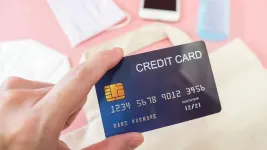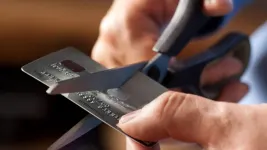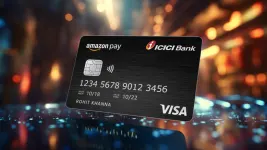5 Common Credit Card Issues and How to Fix Them? [August, 2024]
Credit cards can be a great way to pay for purchases, earn rewards, and build credit. However, when misused, they can lead to a variety of issues. The risks associated with credit cards can be difficult to manage, from high-interest rates to overspending. That is why it’s important to understand the five most common credit card issues and how to solve them.
This blog post will discuss each of these issues and how you can avoid them in the future. By understanding these common problems and taking the necessary steps to solve them, you can ensure your credit card remains a beneficial tool.
/ IN THIS ARTICLE [ hide ]
1. You Have Too Much Debt
Too much debt can have serious consequences, both financially and emotionally. It can lead to late payments, increased interest rates, and damage your credit score. It can also cause you to feel overwhelmed, stressed, and anxious.
When you owe too much, it can be difficult to make ends meet. You may rely on credit cards to pay for emergencies or emergencies. You could also find yourself borrowing from friends and family or borrowing loans to stay afloat.
If you find yourself in this situation, here are a few tips to help you reduce your debt and get back on track.
- Make a budget: Taking the time to create a budget and track your spending is one of the most effective ways to reduce debt. A budget allows you to prioritise your expenses and plan to pay off your debt faster.
- Make a payment plan: Working out a payment plan with your creditors can help you manage your payments and avoid late fees and other penalties. When negotiating a payment plan, communicate your financial situation openly and honestly with your creditors.
- Consolidate your debts: Consolidating multiple debts into one loan can be a great way to save money. It can reduce interest rates and help you pay off your debts more quickly. Before consolidating, compare interest rates and fees across lenders to find the best option for you.
- Get help from a credit counsellor: If your debt is too overwhelming to handle, consider working with a credit counselling agency. A credit counsellor can help you create a plan to manage your debt, provide advice on staying on track, and even negotiate with creditors on your behalf.
2. You Don’t Use Your Rewards
This is one of the most common credit card issues that most people suffer from. If you have a rewards credit card but are not taking advantage of the points and rewards that come with it, you are missing out. Whether it’s cashback, airline miles, hotel stays, or other offers, there are plenty of opportunities to save money and make the most of your credit card.
Start by looking at the rewards program associated with your card. Many rewards cards offer online portals where you can easily see what rewards are available and how to redeem them. You should also consider the rewards available and what suits your needs best.
3. You are Paying Too Much in Interest
A high credit card balance is bad and even worse if coupled with high-interest rates. High-interest rates can make it incredibly difficult to get ahead, as you will pay more for every rupee you spend.
The best thing you can do to avoid such credit card issues is to pay off your balance in full each month. This will help ensure that you are not accumulating any interest on your purchases.
If you have an outstanding balance, consider transferring it to a credit card with a lower interest rate. This will help you save money over time and make it easier to pay off your balance faster.
4. Repayments Are Late or Missing
Making your credit card payments on time is essential for maintaining a good credit score. Unfortunately, it can be easy to overlook a payment or forget to make it. If this happens, it’s important to address the situation as soon as possible.
You should contact your credit card issuer to explain the situation and ask what you can do to get caught up. Depending on the situation, they may waive late fees or give you more time to pay.
You should also ensure this doesn’t happen again by setting up automatic payments or setting a reminder to make your payments. You can also contact your creditor and negotiate a repayment plan if you have trouble catching up on payments. This can help you avoid late fees and additional charges that can add up quickly.
5. You Can’t Use Your Credit Card Abroad
One of the common credit card issues is understanding the exchange rate when purchasing in a foreign country. Many credit cards use the Visa or Mastercard exchange rate, but some have their own, which can be much higher.
Tip: If your credit card doesn’t work in foreign countries, call your bank and ask about the international usage policy for your card. Some international merchants may not accept your credit card, depending on the issuer.
If you are already abroad and your credit card doesn’t work, you can try contacting the merchant directly or ask your hotel or rental car company if they accept other payment methods. Some international locations may also accept debit cards.
The Bottom Line
It can be difficult to manage your credit card accounts and keep them in good standing. However, with the right tips and strategies, you can make sure your credit cards are working for you.
The five most common credit card issues discussed in this article can be addressed and solved if you take the necessary steps. You should look closely at your accounts and review your spending habits to ensure you get the most out of your credit cards. By understanding how to address these common issues, you can keep your credit cards in good standing and maximise their benefits.
FAQs
Q. What can I do if I miss a credit card payment?
If you missed a payment, try to pay it as soon as possible to minimise any late fees or damage to your credit score. You may also be able to call your credit card issuer to request a late fee waiver.
Q. What should I do if my credit card is lost or stolen?
If your credit card is lost or stolen, contact your credit card issuer immediately to report the issue and request a new card.
Q. What do I do if I’m the victim of credit card fraud?
If you suspect your credit card has been used fraudulently, contact your credit card issuer immediately to report the issue and request a new card.
Q. What should I do if I’m having trouble paying my credit card balance?
If you’re struggling to pay your credit card balance, contact your credit card issuer to discuss your options, such as a payment plan or a temporary reduction in interest rates.
Q. What are some common Credit Card issues?
Common Credit Card issues include incorrect billing information, unauthorised charges, and difficulty making payments.

Product prices and availability are subject to change. Any price and availability information displayed on merchant's site at the time of purchase will apply to the purchase of these products. HappyCredit is a participant in the Amazon Services LLC Associates Program, an affiliate advertising program. As part of this program, we may earn commission from qualifying purchases made through the affiliate links provided on this website. We only promote products on Amazon that we genuinely believe are of high quality and value to our audience. The inclusion of affiliate links does not influence our editorial content or product recommendations. Our primary goal is to provide useful information and help you make informed purchasing decisions.
Certain portions of the text in this article might have been created using AI tools and subsequently edited by the author to improve the overall quality and clarity of the content for readers.
![5 Common Credit Card Issues and How to Fix Them? [August, 2024] 5 Common Credit Card Issues and How to Fix Them? [August, 2024]](https://happycredit.in/cloudinary_opt/blog/opt-kih4v.webp)
















